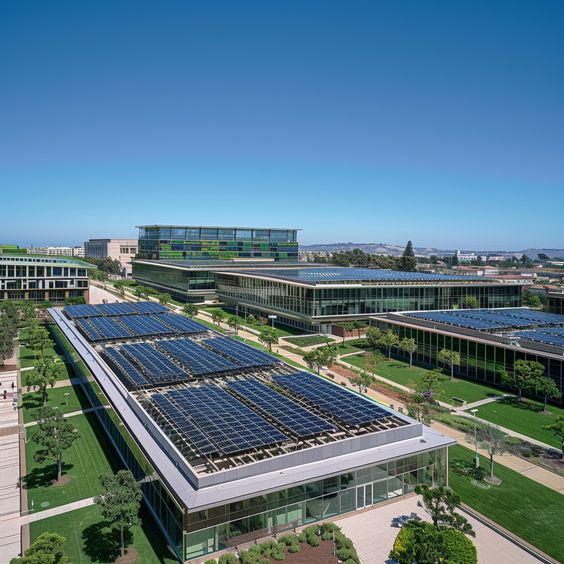How Builders Are Meeting the Rising Demand for Eco-Friendly Apartments
Read latest blogs and articles from Housystan

The Information mentioned here was last updated on:
19/2/2026How Builders Are Meeting the Rising Demand for Eco-Friendly Apartments
Understanding the Surge in Eco-Friendly Apartment Demand
Across cities worldwide, the real estate landscape is undergoing a pivotal transformation. More home seekers are prioritizing sustainability, energy efficiency, and wellness when searching for their next apartment. This surging demand for eco-friendly apartments is not a fleeting trend; it reflects a profound shift in societal values. Builders and developers are responding proactively, integrating green features and innovative technologies to meet buyers’ and renters’ expectations for environmentally conscious living spaces.
- Verified Tenants/Buyers
- Unlimited Property Listing
- Zero subscription/charges fee
The Driving Forces Behind Green Living Choices
Why are so many people gravitating toward eco-friendly apartments? The reasons are multifaceted. First, there is growing public awareness of climate change and the environmental impact of traditional construction. Many residents want to reduce their carbon footprint and live in harmony with nature. Government incentives, stricter building codes, and corporate sustainability commitments also play significant roles in shaping the market. In addition, homebuyers and renters are increasingly attracted to the potential cost savings offered by energy-efficient homes—including lower utility bills and maintenance costs.
Adoption of Sustainable Building Materials
One of the most significant ways builders are reducing environmental impact is by choosing sustainable building materials. Recycled steel, reclaimed wood, bamboo, and low-VOC (volatile organic compound) paints are now staples in modern apartment construction. These materials offer durability, minimize waste, and reduce the release of harmful chemicals into the environment. By opting for locally sourced supplies, builders further cut down on transportation emissions and support regional economies.
Energy-Efficient Design and Technology
Energy efficiency is at the core of every eco-friendly apartment. Builders incorporate double or triple-glazed windows, superior insulation, LED lighting, and smart thermostats to minimize energy consumption. Solar panels and green roofs are also gaining popularity, enabling apartment complexes to generate renewable energy on-site. Some developments even feature geothermal heating and cooling systems, which use the earth’s stable temperature to regulate building climate. These advancements not only reduce reliance on fossil fuels but also make apartments more comfortable and affordable for residents.
Water Conservation Initiatives
Freshwater scarcity is a pressing global issue. To address this, builders are embracing water-saving technologies such as low-flow faucets, dual-flush toilets, and rainwater harvesting systems. Many eco-friendly apartments now feature native landscaping or xeriscaping, which reduces the need for irrigation and supports local biodiversity. Greywater recycling systems are also being installed, allowing water from sinks and showers to be reused for non-potable purposes like irrigation and flushing toilets.
Promoting Indoor Air Quality and Wellness
Apartments designed with environmental health in mind prioritize indoor air quality. Builders use non-toxic paints, adhesives, and finishes to minimize airborne pollutants. Advanced ventilation systems ensure a steady supply of fresh air while filtering out allergens and contaminants. Many developments incorporate biophilic design principles, bringing nature indoors with green walls, indoor gardens, and ample natural light. These features promote wellness, reduce stress, and enhance residents’ quality of life.
Smart Home Integration for Sustainable Living
Technology is a powerful ally in the quest for greener apartments. Smart home systems allow residents to monitor and control their energy and water usage in real time. Automated lighting, heating, and cooling systems adjust based on occupancy and weather conditions, optimizing resource efficiency. Builders are also integrating electric vehicle charging stations and secure bicycle storage to encourage low-impact transportation options.
Community-Focused Sustainable Amenities
The eco-friendly movement extends beyond individual units; entire apartment communities are being designed with sustainability in mind. Rooftop gardens, shared green spaces, and community composting programs foster connection among residents and encourage eco-conscious habits. Some developments offer car-sharing programs, community gardens, and workshops on sustainable living, empowering residents to make environmentally responsible choices both at home and within their neighborhoods.
Green Certifications and Transparent Building Practices
To demonstrate their commitment to sustainability, many builders pursue third-party certifications such as LEED (Leadership in Energy and Environmental Design), ENERGY STAR, or BREEAM. These certifications provide prospective residents with assurance that their new home meets rigorous environmental standards. Transparent communication about building materials, energy performance, and maintenance expectations builds trust with eco-conscious buyers and renters.
Overcoming Challenges in Green Apartment Development
While the benefits of eco-friendly apartments are clear, builders do face challenges. Upfront costs for sustainable materials and technologies can be higher than traditional options. However, long-term savings on energy, water, and maintenance often offset these initial investments. Additionally, evolving regulations and the need for specialized expertise require ongoing education and collaboration across the construction industry. Many builders are forming partnerships with environmental consultants, architects, and technology providers to stay ahead of the curve.
The Future of Sustainable Urban Living
As urban populations grow and environmental concerns intensify, the demand for eco-friendly apartments will only increase. Builders who embrace sustainability are not only meeting market demand but also contributing to healthier, more resilient communities. With continued innovation, collaboration, and education, the future of apartment living promises to be greener, smarter, and more attuned to the needs of both people and the planet.
Key Takeaways for Home Seekers and Industry Professionals
For anyone searching for a new home, prioritizing eco-friendly apartments means investing in comfort, cost savings, and a healthier environment. For builders and developers, meeting this demand requires a commitment to sustainable materials, energy-efficient technologies, and community-oriented design. By working together, stakeholders across the real estate landscape can create a new standard for urban living—one that honors both present needs and future generations.